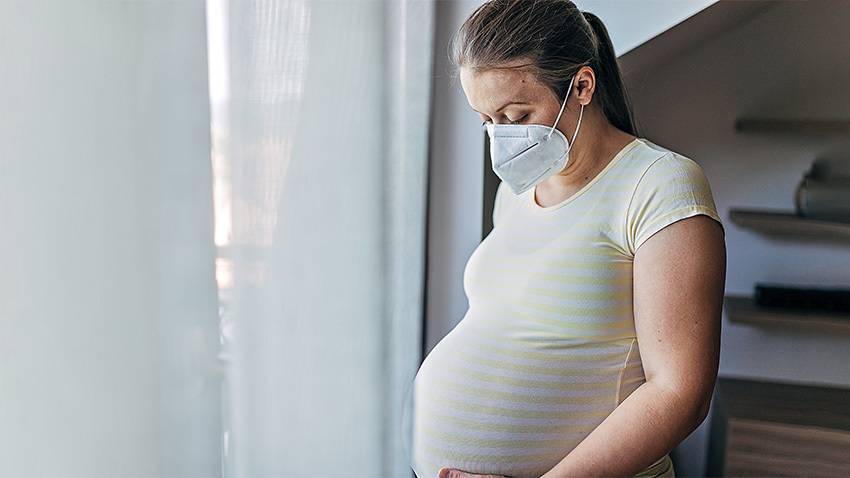Popular Searches
Effect of COVID on Fertility
Fertility Meaning
The natural capacity of the couple to conceive a child is called fertility. However, not every couple is able to conceive effortlessly due to various complications with respect to their fertility. About 11% of the couples will face infertility in Western countries – the inability to conceive naturally after one year of unprotected sexual intercourse.
It is a common belief that fertility is only a female issue. Both males and females are increasingly facing infertility and both men and women can take the steps to improve their fertility.
The process of pregnancy is a complex one and must be healthy so that the baby is born without any health complications. In order for the pregnancy to progress full term, the embryo must be healthy and the woman’s hormonal environment adequate for the development. Although it is a common belief that infertility can be primarily related to the woman, in reality, only one-third of the infertility cases are related to the woman alone. Statistically, one-third of the infertility problems are related to men and the remaining one-third is a combination of fertility factors, it involves both partners or unknown causes. Unknown causes account for approximately twenty percent of infertility cases.
When you are desirous of conceiving a child, it is important to understand the meaning of normal fertility which is crucial to helping a person, or couple, to know when it is time to seek help. Most of the couples (approximately 85%) will achieve pregnancy within one year of trying, which has the greatest likelihood of conception occurring during the earlier months.
Signs of Infertility Among Men and Women

The underlying conditions are often what lead to infertility. Numerous conditions can lead to infertility in men and women. The signs and symptoms of each can vary greatly. The common symptoms of infertility are as follows:
1. Irregular Periods
There is an average time duration of a woman’s cycle which is 28 days long but anything which is within a few days of the same can be considered normal. As long as these cycles are consistent, it is considered to be normal.
For example, if a woman who has 33 day cycle one month, a 31 day cycle the next, and a 35 day cycle post that, is probably having ‘normal’ periods.
2. Painful or Heavy Periods
A woman whose cycles vary so greatly that she cannot even begin to estimate when her periods might arrive is experiencing irregular periods. It can also be related to hormone issues, or to polycystic ovarian syndrome (PCOS). Both of these can contribute to infertility.
3. No Periods
It is not uncommon for women to have a month without their cycle. Factors like stress or heavy workouts can cause the period to temporarily disappear. But if you haven’t had a period in months, it is time to get your fertility checked.
4. Symptoms of Hormone Fluctuations
Signs of hormone fluctuations in women could indicate potential issues with fertility. It is important to talk to the doctor once you experience the following:
- Skin Issues
- Reduced Sex Drive
- Facial Hair Growth
- Thinning of Hair
- Weight Gain
5. Pain During Sex
Women have also experienced painful sex their entire lives, so they have convinced themselves that it is normal. But it is not. It is often related to hormone issues and to endometriosis. Other conditions can also be responsible for infertility.
Common Signs of Infertility Among Men

1. Changes in Sexual Desire
A man’s fertility is also linked with their hormonal health. Changes in virility, often governed by the hormones, could indicate issues with fertility.
2. Testicle Pain Or Swelling
The several different conditions could lead to pain or swelling in the testicles, many of which could contribute to infertility.
3. Problems Maintaining Erection
A man’s ability to maintain an erection is often linked to hormone levels. If the hormone levels are decreased this could lead to trouble conceiving.
4. Issues With Ejaculation
Similarly, it is the inability to ejaculate which is a sign of the need to visit the doctor.
5. Small and Firm Testicles
The testes house a mans sperm, so testicle health is paramount to the male fertility. Small or firm testicles could indicate potential issues that should be explored by the medical practitioner.
Around 15 to 20 percent of the couples trying to conceive will have trouble with infertility. In case you have been diagnosed with infertility, or fear one may have trouble conceiving, it is immediately essential to consult the doctor
Factors Affecting Fertility Among Men and Women

One in every eight couples suffer from infertility. Since baby producing is a complex process, it is contingent upon four crucial steps:
- The woman and man each produces eggs and sperm.
- Healthy fallopian tubes that allow the sperm to easily get to the egg.
- The sperm’s ability to fertilise the egg upon reaching it.
- A fertilised egg ability to attach to the uterus and continue developing normally.
There is infertility which may result when the above mentioned steps are not aligned.
COVID-19 Trends Over the Last 6 Months
In late 2019, a new coronavirus emerged in central China to cause disease in humans. The covid cases have been reported across the globe on January 30, 2020 and the World Health Organisation declared the virus which represents a public health emergency of international concern, and on January 31, 2020, the US Department of Health and Human Services declared it to be the health emergency for the United States.
Effect of COVID on Fertility

In our effort to answer the question of how does COVID-19 affects the fertility rate, let us take a look at its role in fertility for both men and women.
Effect of COVID on female and male fertility has been well researched by scholars and medical practitioners ever since the origin of the virus. COVID-19 may negatively affect the sperm quality and reduce the fertility factors in men, along with magnitude of the effect which may depend on the severity of the disease.
The female partners of men who are recovering from COVID-19 should not conceive until a specialist carefully examines and certifies their fertility status.
Even with the introduction of the vaccine, the health care providers should use the findings to counsel reproductive aged couples on the importance of properly following the CDC guidelines regarding social distancing, masking and hand washing. Many questions remain unanswered, and the larger scale studies with longer follow-up evaluating hormonal profiles and semen analyses are needed to know the long-term consequences after recovering from the COVID-19 on male fertility.
COVID-19 and Pregnancy
Apart from COVID-19 and the fertility rate, the pandemic has come as a health hazard for the world, with populations of all age groups being badly affected with various health complications. The protocols for testing and eligibility during the pregnancy vary depending on where one lives. WHO recommends that pregnant women with symptoms of COVID-19 should prioritise testing. If they have COVID-19, they may need specialised care.
If we begin to explore the genre has birth rate increased during COVID-19?, the key to understand this is to explore the trends of COVID and the reasons it is affecting pregnancy.
The birth rates during COVID in India –
Although the pandemic has resulted in fewer baby births in the Unites States of America, the research shows this trend projects the biggest slump in a century. France has recorded its lowest birth rate since World War II and China has received 15% fewer registration for the babies.
The United Nations had projected last year that Indians would lead nations in the list of post pandemic baby boom. This was largely attributed to breakdown of contraceptive services during the lockdown. So the COVID impact on the birth rate in India has been quite evident, given the non evidence of the projected post pandemic baby boom. The gynaecologists across the country had projected a birth rate increase due to covid but the same did not happen.
Fewer deliveries are being conducted as compared to pre-pandemic days and instead several doctors have told that there has been an uptick in the requests for abortions.
There are many reasons for the same which include a continuing fear of COVID-19, pandemic restrictions which do not allow hospitals – especially government facilities – to admit patients. Lack of access to contraceptives during the lockdown has also resulted in fewer baby deliveries.


